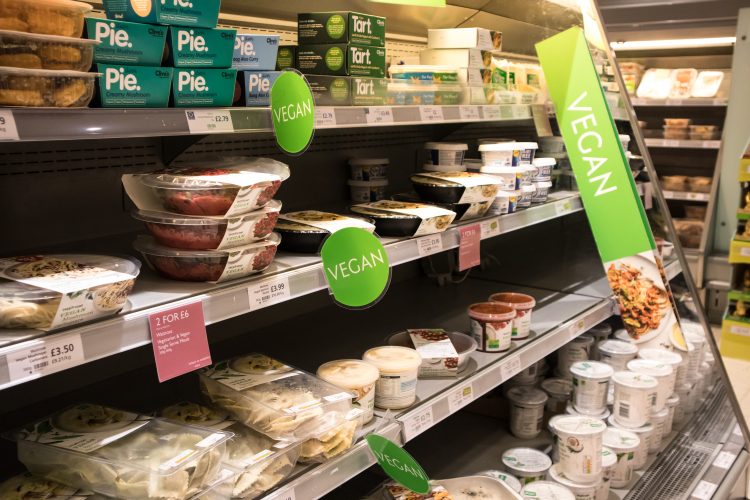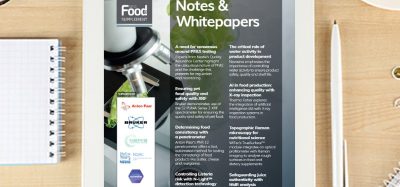Vegan doesn’t always mean animal-free, says FSAI
- Like
- Digg
- Del
- Tumblr
- VKontakte
- Buffer
- Love This
- Odnoklassniki
- Meneame
- Blogger
- Amazon
- Yahoo Mail
- Gmail
- AOL
- Newsvine
- HackerNews
- Evernote
- MySpace
- Mail.ru
- Viadeo
- Line
- Comments
- Yummly
- SMS
- Viber
- Telegram
- Subscribe
- Skype
- Facebook Messenger
- Kakao
- LiveJournal
- Yammer
- Edgar
- Fintel
- Mix
- Instapaper
- Copy Link
Posted: 29 September 2020 | Bethan Grylls (New Food) | No comments yet
The FSAI has issued an allergen warning due to the possibility of animal ingredients in vegan declared foods.


The Food Safety Authority of Ireland (FSAI) has ushered a public warning that vegan food may contain animal ingredients.
Many consumers assume that because a food is labelled as ‘vegan’ it will contain no ingredients of animal origin, but this is not always the case. The FSAI has cautioned that low-level accidental cross-contamination from animal-based allergens can occur during the production process.
The term vegan is not defined in EU or Irish food law and, as a result, there are no limits set out in food law about the proportion of animal-derived ingredients permitted in such food.
This could be particular dangerous for those with allergies to ingredients such as egg, molluscs or fish for example.
The FSAI is urging food businesses who make vegan-labelled food to double their efforts to ensure that their production and packaging processes are sufficient to minimise the risk of cross-contamination with animal-derived ingredients.
“With the proportion of the population adhering to plant-based diets, including dietary vegans, growing significantly in recent years, there has been a corresponding upsurge in products on the market purporting to cater for such diets. However, under EU and Irish food law there is no clear definition of the term vegan, creating challenges for regulatory authorities and some people on vegan diets,” noted Dr Pamela Byrne, Chief Executive of the FSAI.
“Most people who follow dietary vegan or plant-based diets do not have allergies to animal-derived products, but for those who do, accidental cross-contamination of the foods labelled as vegan could have very serious health consequences. Consumers who are allergic to or intolerant of egg, milk, fish, molluscs or crustaceans need to be alert to the possibility that a food declared as vegan may contain small amounts of these animal-derived ingredients and therefore, they are not always safe for them to eat.
“The five animal-derived food allergens must be declared at all times when used as ingredients to produce food. However, if a food is accidentally cross contaminated, this will not be the case. Consumers who have an allergy or intolerance to an animal-derived food may be drawn to buying foods declared as vegan thinking that they are safe to eat. Despite the best hygiene controls being applied correctly, cross contamination of a vegan food with low levels of animal-derived ingredients is always a possibility.”
She concluded, “Once the legal status of vegan-labelled foods is fully addressed at EU level, it will be clearer as to what levels of animal-derived ingredients will be tolerated in foods calling themselves vegan. Only when such guidelines are available will susceptible consumers be better equipped to judge for themselves whether or not they can safely consume vegan foods.”
Related topics
Allergens, Food Safety, Free From, Ingredients, Regulation & Legislation








